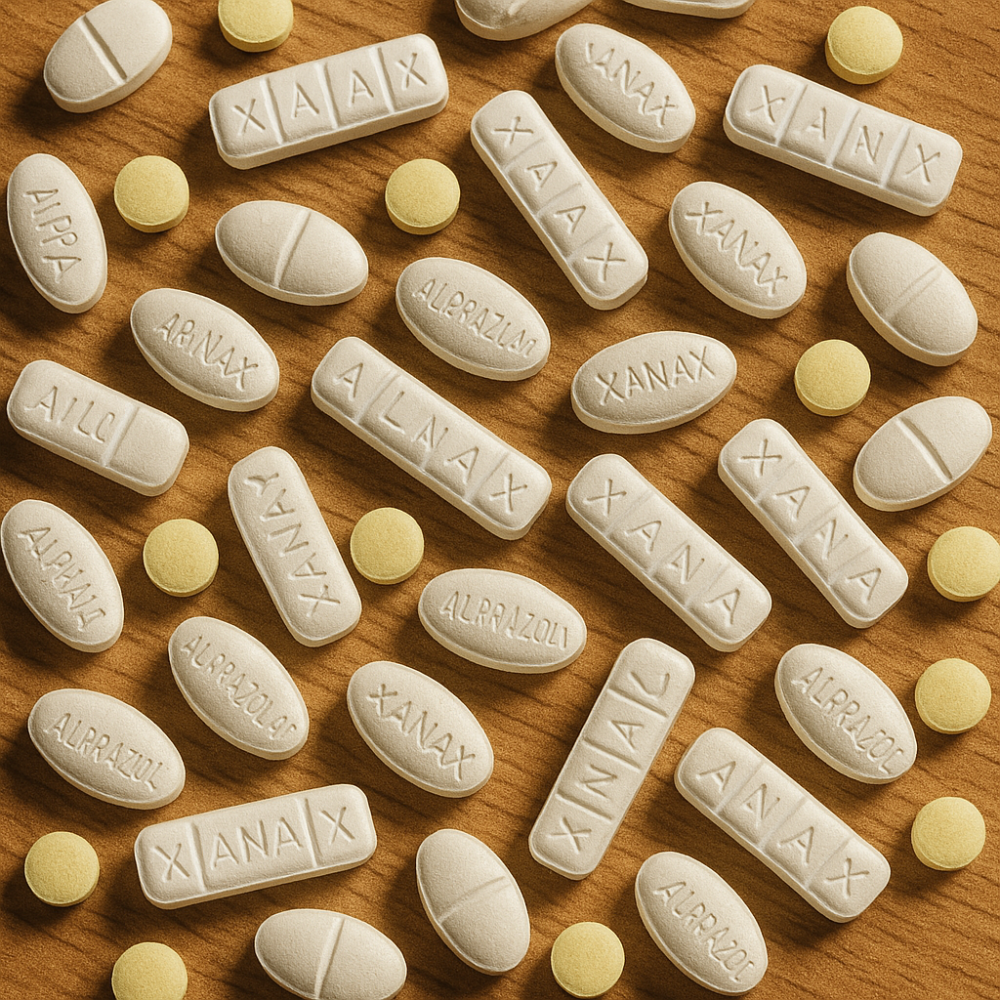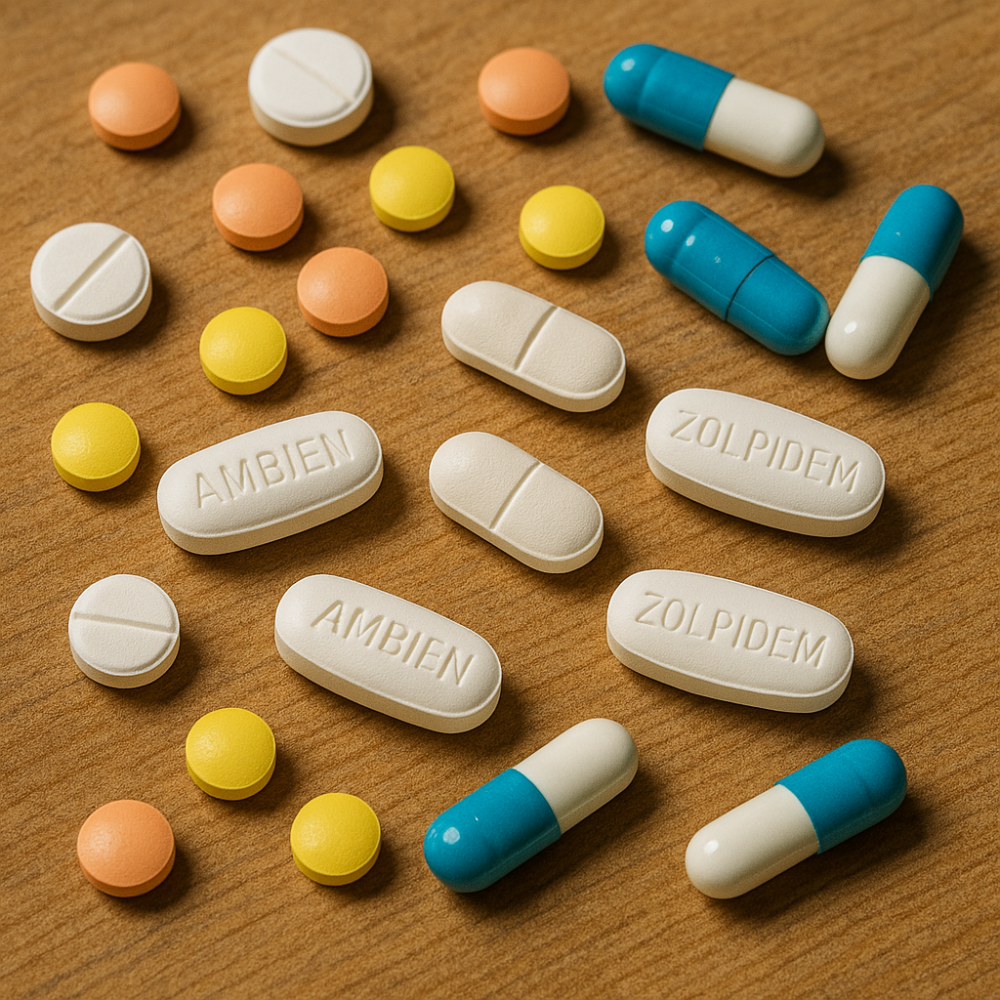The Dangers of Combining Ambien & Hydrocodone
In our fast-paced world, many individuals turn to medications to manage health conditions, sleep disorders, and pain relief. While these medications provide much-needed relief when used as prescribed, it is essential to be aware of the potential risks when combining certain drugs. A particularly concerning combination is Ambien (a sleep aid) and Hydrocodone (a narcotic pain or cough medication).
Ambien: Usage & Side-Effects
Ambien, whose generic name is zolpidem, is a sedative primarily prescribed for the short-term treatment of insomnia. It falls under a class of drugs called sedative-hypnotics and works by affecting certain chemicals in the brain that may be unbalanced in individuals with sleep problems.
How Ambien Works
Ambien aids in initiating sleep by slowing down the activity within the brain, allowing the user to fall asleep more quickly and stay asleep longer. It affects the neurotransmitter GABA (gamma-aminobutyric acid), which has inhibitory functions in the brain, essentially calming the brain’s activity.
Recommended Usage
Ambien is intended for short-term use and is typically not recommended for more than a few weeks. Prolonged use can lead to dependency, tolerance, and potential adverse side effects. It’s crucial to take it exactly as prescribed, without mixing it with other CNS depressants unless advised by a healthcare professional.
Side Effects of Ambien
While Ambien is effective in treating insomnia, it also comes with potential side effects. Some common side effects include:
- Drowsiness or dizziness
- Headaches
- Gastrointestinal disturbances like nausea
- Lightheadedness or feeling “drugged”
In rare cases, individuals might experience more serious side effects, such as engaging in activities like driving, eating, or making phone calls while not fully awake and having no memory of the activity afterward.
Understanding Ambien, its benefits, and potential risks is crucial for anyone prescribed this medication. It’s always essential to use Ambien responsibly and under the supervision of a medical professional, especially when considering its interaction with other drugs like Hydrocodone.
Hydrocodone: Applications and Side-Effects
Hydrocodone is an opioid analgesic, which means it’s a powerful pain-relieving medication derived from the poppy plant. It’s often prescribed to manage moderate to severe pain, particularly when other pain relief methods are ineffective.
How Hydrocodone Works
Hydrocodone functions by altering the way the brain and nervous system respond to pain. Like other opioids, it achieves its effects by binding to specific receptors in the brain and spinal cord, reducing the perception of pain and producing feelings of euphoria.
Typical Usage
Often, hydrocodone is combined with other non-opioid painkillers, like acetaminophen, to enhance its pain-relieving effects and to deter misuse. These combinations are commonly found in brand-name drugs like Vicodin or Lortab. Due to its potential for misuse and dependency, hydrocodone is typically prescribed for short-term use or as a last resort for chronic pain management.
Side Effects of Hydrocodone
Hydrocodone, like other opioids, comes with a variety of side effects. Some of the most common include:
- Drowsiness or dizziness
- Constipation
- Nausea and vomiting
- Dry mouth
- Lightheadedness
More serious side effects can include slowed breathing, dependency, and overdose, especially when taken in higher doses or when mixed with other substances, including alcohol or other medications.
Hydrocodone is a potent pain reliever, but it’s essential to understand its effects, potential risks, and interactions, especially when combined with other medications like Ambien. As always, it’s crucial to take hydrocodone only as prescribed by a healthcare professional and to discuss any concerns or potential interactions with them.
Risks of Mixing Ambien and Hydrocodone
Both Ambien and Hydrocodone have a sedative effect on the central nervous system (CNS). When taken together, their combined effect can lead to enhanced CNS depression. This means the normal functioning of the brain and other parts of the nervous system can be slowed down considerably. This can result in serious side effects such as:
- Respiratory Depression: A slowed CNS can lead to depressed respiratory function, meaning one might not breathe as effectively as they should.
- Coma: In severe cases, the combination can lead to a person falling into a coma.
- Death: In the most extreme scenarios, the combined depressive effects can be fatal.
Understanding Respiratory Depression
Respiratory depression, also known as hypoventilation or respiratory insufficiency, is a medical condition characterized by a decrease in the rate and depth of breathing. In this state, the lungs do not adequately exchange oxygen and carbon dioxide, leading to reduced oxygen intake or increased carbon dioxide retention in the bloodstream.
Several factors can lead to respiratory depression:
- Medications: Many medications, especially opioids like hydrocodone and certain sedative drugs like Ambien, can slow the respiratory system. The risk increases when these drugs are taken in high doses, combined with other respiratory depressants, or consumed with alcohol.
- Neurological Disorders: Conditions that affect the brain or spinal cord, such as traumatic brain injuries, strokes, or certain infections, can interfere with the body’s respiratory drive.
- Lung and Respiratory Conditions: Diseases like chronic obstructive pulmonary disease (COPD) or asthma can, in acute scenarios, lead to hypoventilation.
- Other Causes: Hypothermia, electrolyte imbalances, or certain metabolic conditions can also affect breathing.
Symptoms of Respiratory Depression
Respiratory depression can present with a range of symptoms, including:
- Shallow breathing
- Slow breathing rate
- Blue-tinged skin, especially on the fingertips and lips (cyanosis)
- Confusion or disorientation
- Fatigue or drowsiness
- Loss of consciousness in severe cases
If left untreated, respiratory depression can lead to serious complications, including:
- Hypoxia: Reduced oxygen supply to the body’s tissues.
- Hypercapnia: Elevated levels of carbon dioxide in the blood, which can disturb the body’s acid-base balance and impair organ function.
- Brain damage or death: Prolonged oxygen deprivation can lead to irreversible brain damage and can be fatal.
Respiratory depression is a serious and potentially life-threatening condition. Recognizing its signs and understanding its causes, especially in the context of medication use, is crucial for ensuring the safety and well-being of oneself and others.
Potential for Impaired Judgment and Coordination
Both of these medications can cause dizziness, drowsiness, difficulty concentrating, and impairment in judgment. This means that your ability to make quick decisions, react in time, and coordinate your movements can be significantly affected. Consequently, activities like driving or operating heavy machinery can become hazardous, increasing the risk of accidents.
Interaction with Other Medications and Supplements
It’s crucial to inform your doctor about all the medications, vitamins, and herbs you consume. Some of these can interact with Ambien or Hydrocodone, increasing the risk of adverse effects. Only a healthcare professional can accurately gauge the risks and benefits of every drug interaction.
Potential for Alcohol Interaction
Alcohol is a depressant, and when combined with other CNS depressants like Ambien and Hydrocodone, the risks mentioned above can amplify. It is strongly advised not to drink alcohol or self-medicate with these medications without explicit approval from a medical professional.
Help is Available
While both Ambien and Hydrocodone have their therapeutic benefits, their combined use poses significant dangers. Staying informed and adhering to professional medical advice is the best way to ensure one’s safety and well-being.
It’s essential to recognize the signs of addiction, not only for yourself but also for the ones you love. If you or someone you know is struggling with opioid addiction or any other substance abuse, it’s crucial to seek professional help before it’s too late. Gallus Medical Detox is here to assist. With a dedicated team of professionals, they provide comprehensive care tailored to individual needs. Their primary goal is to ensure that those struggling can reclaim their lives and start a new chapter, free from addiction’s chains.
If you’re unsure about the state of your relationship with opioids or other substances, Gallus Medical Detox offers a self-assessment tool that can guide you toward understanding whether professional intervention may be necessary.
Don’t let addiction dictate the course of your life or that of your loved ones. Reach out, take our self-assessment, or simply call Gallus Medical Detox for guidance and support. Remember, there’s always hope, and it’s never too late to seek help. Call 866-272-5978 today.
FAQs
What is Ambien primarily used for?
Ambien (zolpidem) is primarily prescribed as a short-term treatment for insomnia. It helps individuals fall asleep more quickly and maintain sleep throughout the night.
Is Hydrocodone an over-the-counter drug?
No, hydrocodone is a prescription-only opioid analgesic used to treat moderate to severe pain. Due to its potential for misuse and dependency, it is regulated and should only be taken under the guidance of a healthcare professional.
Why is mixing Ambien and Hydrocodone dangerous?
Both Ambien and Hydrocodone act as central nervous system depressants. When taken together, their combined effect can lead to enhanced CNS depression, which can result in serious side effects such as respiratory distress, coma, or even death.
What is respiratory depression?
Respiratory depression, or hypoventilation, is a state in which there’s a decrease in the rate and depth of breathing. This condition can lead to reduced oxygen intake or increased carbon dioxide retention, resulting in potential harm to the body.
Are there any visible signs of respiratory depression?
Yes, symptoms of respiratory depression can include shallow or slow breathing, blue-tinged skin (especially on the fingertips and lips), confusion, fatigue, and in severe cases, loss of consciousness.
Can alcohol amplify the effects of Ambien and Hydrocodone?
Yes, alcohol is a depressant and can further depress the central nervous system when consumed with other CNS depressants like Ambien and Hydrocodone. This combination can significantly increase the risk of respiratory depression and other dangerous side effects.
How can one prevent adverse reactions when taking these medications?
It’s crucial to take medications as prescribed, avoid mixing them with alcohol or other drugs without a doctor’s guidance, and regularly consult with healthcare professionals regarding any concerns or potential interactions. Always inform your doctor about all medications, vitamins, and herbs you are taking.
What should one do if they suspect someone is experiencing respiratory depression?
Immediate medical attention is vital. If someone is showing signs of respiratory depression, call emergency services and ensure the person has a clear airway. Do not leave the person unattended, and if trained, consider initiating rescue breathing or CPR if they stop breathing.
References
- Zolpidem: MedlinePlus drug information. (n.d.-c). https://medlineplus.gov/druginfo/meds/a693025.html
- Jewett, B. E. (2023b, July 24). Physiology, GABA. StatPearls – NCBI Bookshelf. https://www.ncbi.nlm.nih.gov/books/NBK513311/
- Hydrocodone: MedlinePlus drug information. (n.d.). https://medlineplus.gov/druginfo/meds/a614045.html
- Acetaminophen: MedlinePlus drug information. (n.d.-c). https://medlineplus.gov/druginfo/meds/a681004.html
- Hydrocodone combination products: MedlinePlus Drug information. (n.d.). https://medlineplus.gov/druginfo/meds/a601006.html
- DailyMed – LORTAB- hydrocodone bitartrate and acetaminophen syrup. (n.d.). https://dailymed.nlm.nih.gov/dailymed/drugInfo.cfm?setid=21def91d-b6e3-4dde-983c-6925aedf0df0
- Drug Interaction Report: Ambien, hydrocodone. (n.d.). Drugs.com. https://www.drugs.com/interactions-check.php?drug_list=2333-1544,2874-0
- Higuera, V. (2017b, August 2). Respiratory depression (Hypoventilation). Healthline. https://www.healthline.com/health/respiratory-depression
- Harmful interactions | National Institute on Alcohol Abuse and Alcoholism (NIAAA). (n.d.-b). https://www.niaaa.nih.gov/publications/brochures-and-fact-sheets/harmful-interactions-mixing-alcohol-with-medicines


 Casey Wilson
Casey Wilson 
